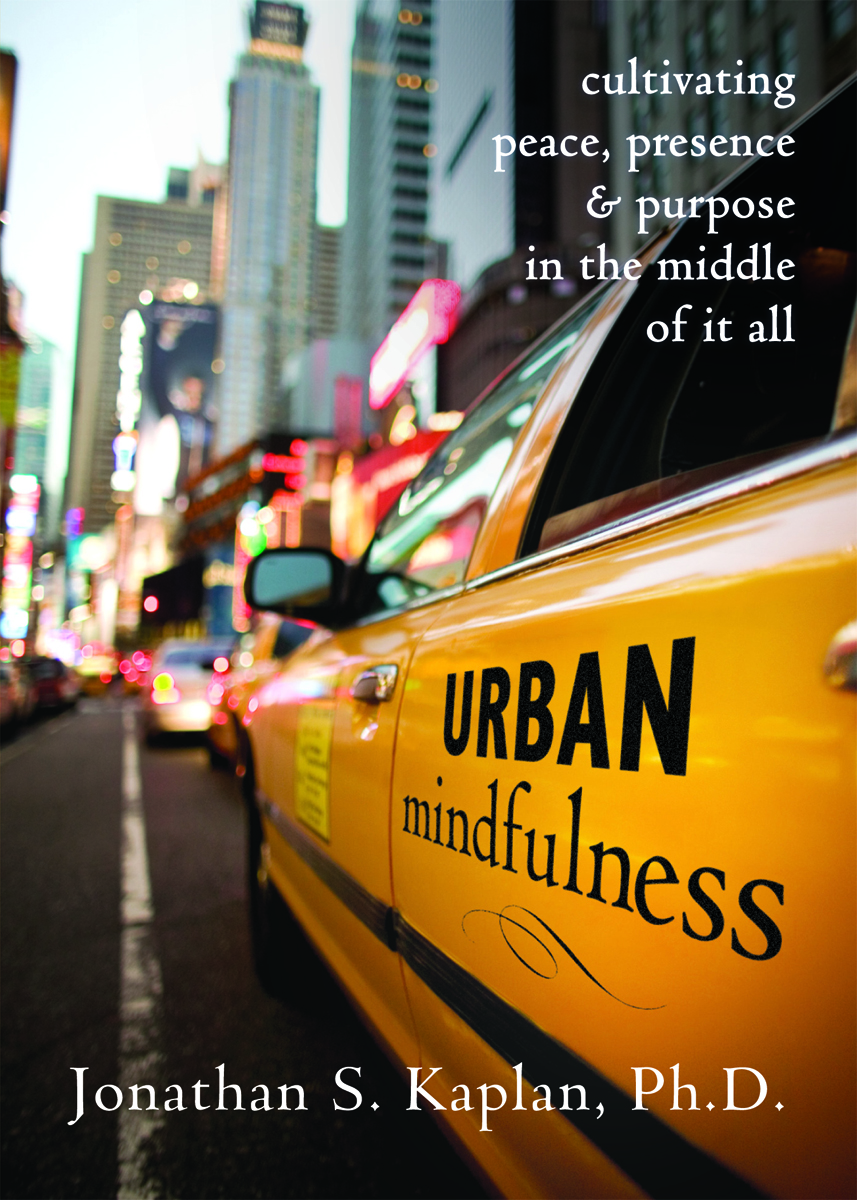Monday
Jun132011
Mindfulness and Anxiety: An interview with Dr. Lizabeth Roemer
 Monday, June 13, 2011 at 11:46AM
Monday, June 13, 2011 at 11:46AM  By Jonathan Kaplan, Ph.D.
By Jonathan Kaplan, Ph.D.Recently, a wonderful new book was released to help people suffering from anxiety. Authored by Drs. Susan Orsillo and Lizabeth Roemer, The Mindful Way Through Anxiety provides a systematic, mindfulness-based approach to the alleviation of anxiety and the promotion of values-based living. I highly recommend this book to my patients because of the many exercises and case examples. This book also reflects the research-based treatment that they've developed over the past several years. Recently, I was fortunate to have the opportunity to speak with Dr. Roemer. Here is an excerpt of our chat.
What prompted you to write this book?
After spending years developing this approach to treatment and training therapists in the approach, we wanted to bring the work we’d been doing directly to people with anxiety who we weren’t seeing therapy. We wanted to help more people experience the kinds of meaningful changes we were seeing our clients make and felt like we could write a book that would make a valuable contribution to the available self-help books.
Why use mindfulness to address anxiety? Why would anyone want to become more aware of anxiety, fear, and other unpleasant emotions?
An important thing about mindfulness is that it is a particular kind of awareness. It is an expanded awareness, not a narrow one. Most people with anxiety are too narrowly focused on things that are threatening or anxiety-provoking as opposed to their whole experience. Also, mindfulness involves an awareness with compassion as opposed to the very narrow, critical awareness that accompanies anxiety. Anxiety prompts people to be hyperaware of threat, which leads to avoidance. That avoidance interferes with learning new things as well as fully experiencing life.
How is your treatment different than cognitive-behavioral therapy (CBT) alone?
CBT is very effective for anxiety and our treatment is firmly grounded in cognitive-behavioral theory and practice. We started incorporating mindfulness because we thought it could enhance treatment effects for some people. By promoting acceptance, mindfulness allows people to relate differently to experiences that are not amenable to change. Ultimately however, technique isn’t as important as function. Our emphasis is on helping people relate differently to their symptoms of anxiety so that they can live their lives more fully. We think mindfulness allows us to accomplish this better with CBT.
 You include several meditations in your book and on the accompanying website. What do you say to folks who tell you that they can't meditate?
You include several meditations in your book and on the accompanying website. What do you say to folks who tell you that they can't meditate?If meditation was something that you could do easily, then you would have already done it! The point of the exercises is to cultivate this new skill of mindfulness, which can be learned through practice--just like any other skill. So, we work with many ways to cultivate this skill. Most people can find five minutes to sit and practice mindfulness. Setting some time outside of our lives to practice allows us to be better able to use it in our lives. We have also worked with people who practice doing everday activities, like brushing their teeth or folding laundry, with mindfulness instead of setting aside time to meditate. The book provides flexible suggestions of different ways to incorporate practice into your life.
Given the topic on this blog--mindfulness in the city--do you find that folks in the city are more or less anxious than others?
I treated anxiety for a long time in State College in Pennsylvania and now for a while in Boston. I find that people's lives are more complicated in the city. People encounter more real life barriers and stressors that naturally elicit anxiety, like the faster pace. And, relatedly, it's harder to be mindful. It's harder to naturally have the spaces and moments to come back to ourselves. We have to do that more intentionally.
Is there anything else you'd like to add?
Yes. I'd like to discuss the importance of engagement in life. An crucial part of the book--in addition to finding ways to be more open, expansive, and relate to experience differently--is to find meaningful experiences in life. Anxiety leads us to focus on whatever is threatening and avoid it. People avoid certain experiences in order to not feel anxious and that doesn't really work. An alternative is to cultivate skills of mindfulness and have anxious responses, but not react to them. And, then proceed to do the things that matter to us, like opening-up in a relationship, being present with your children, or advancing professionally. It's a way of responding to anxiety that is in the service of living a full life. What do you want to move towards that you haven't been moving towards becuase of your fears? Can you have your reactions and do what matters to you anyway? The book helps people to develop skills so that they can live their lives more fully.
tagged  Lizabeth Roemer,
Lizabeth Roemer,  anxiety,
anxiety,  book,
book,  therapy in
therapy in  Acceptance,
Acceptance,  Interview,
Interview,  Mindfulness
Mindfulness
 Lizabeth Roemer,
Lizabeth Roemer,  anxiety,
anxiety,  book,
book,  therapy in
therapy in  Acceptance,
Acceptance,  Interview,
Interview,  Mindfulness
Mindfulness 




